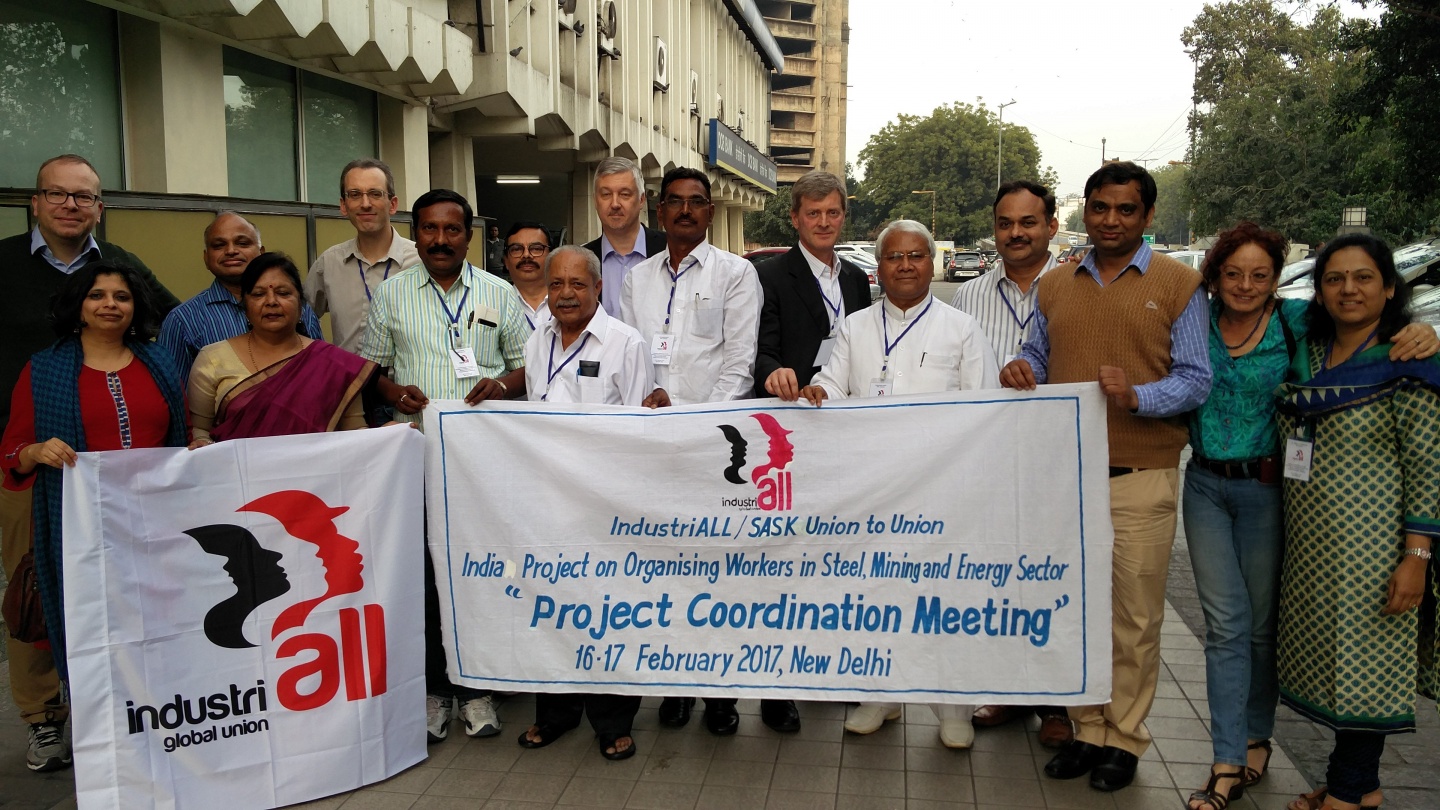22 February, 2017Since 2014 IndustriALL affiliates in India have organized more than 63,000 new members, including a large number of precarious workers.
During 2014 – 2016, affiliates from the steel, mining and energy sectors organized 43,062 new members, while affiliates from the textile, garments, shoe and leather sector organized 19,993 new members, in projects supported by IndustriALL and Union to Union, IF Metall, Unionen, SASK, the Finnish Metalworkers' Union and Pro.
During a meeting in Delhi in February, affiliates met to discuss the challenges of building sustainable unions, providing effective services to members, taking advantage of global framework agreements (GFAs) and union networks.
Atle Høie, assistant general secretary of IndustriALL says that bringing more workers into the union fold is a key objective to fulfill strategic goals.
“It is also important to organize workers in supply chains and increase women’s participation to build union power and a just society.”
While organizing, affiliates faced systemic challenges such as anti-labour political situation, changing labour laws, difficulties in registering new unions, closure of sponge iron units, cheaper steel imports, demonetization and repressive management.
There are also concerns over the difficulty in organizing precarious workers, which deeply affects the sustainability of union structures and the collection of dues.
“The projects are important tools to enhance affiliates’ capacity and to support their efforts to build stronger and sustainable unions,” says Apoorva Kaiwar, South Asia regional secretary.
The steel, mining and energy sector project worked with the Indian National Metalworkers' Federation, Indian National Mineworkers' Federation, the Steel, Metal & Engineering Workers' Federation of India and the Hind Khadan Mazdoor Federation to organize workers in Andhra Pradesh, Telangana, Chhattisgarh, Jharkhand, Odisha and Maharashtra.
A large number of precarious workers were organized, and solidarity was extended to fight for compensation for people who had land expropriated for corporate projects.
Involving women
In 2016, about 20,000 workers participated in various events, including area meetings, gate meetings and rallies. These events also saw increased women participation.
Devika Singh, chair of the India IndustriALL women’s committee, shared the results of mapping exercise of women workers in the sector and called for more attention to address women issues:
“Most women workers in the sector are precarious workers. In many steel plants and in mining areas women workers face problems of low wages, sexual harassment, lack of designated toilets for women, occupational health and safety and absence of crèche facilities.”
The textile, garments, shoe and leather project supported the work of the National Textile, Garment & Leather Workers' Federation, the Self-Employed Women's Association, the Indian National Garment & Leather Workers' Federation, the Indian National Textile Workers' Federation, Workers Initiative and the Textile Workers' Federation of India.
The work was carried out in manufacturing clusters such as Chennai, Coimbatore, Bangalore, Kolkatta and its suburban areas, Delhi national capital region, Kanpur, Ahmedabad and Mumbai. In 2016, over 7,000 workers participated in meetings and workshops.
Adam Lee, IndustriALL director for the base metals sector, said:
“Our Indian affiliates can take advantage of union networks and GFAs in multinational corporations.
“Unions internationally have power at some multinationals and can extend effective solidarity in the sector. Affiliates in India need to identify these multinationals and make use of existing union power to support organizing campaigns in India.”








